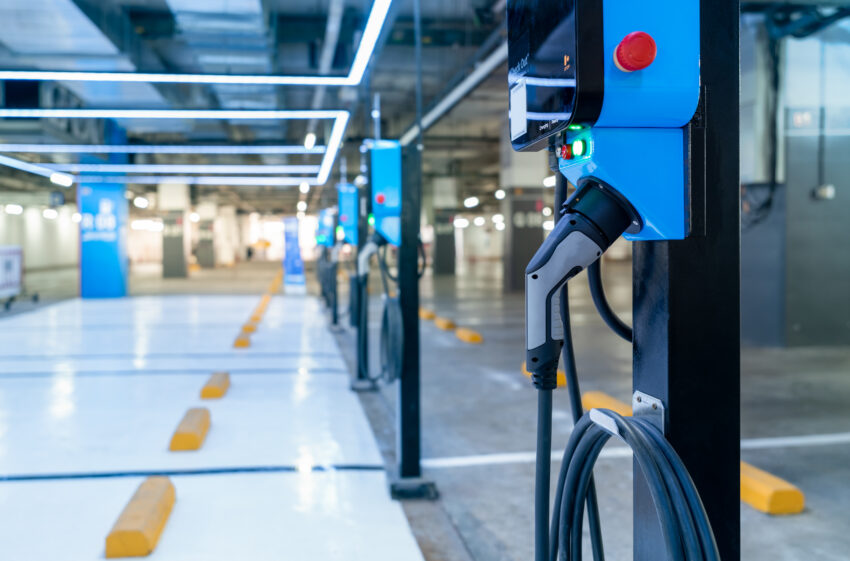What does the UK’s smart charging legislation mean for EV owners?
Even though the UK’s smart charging legislation has now come into force, EV drivers are still in the dark over what this means for them and their vehicles.
EV sales are skyrocketing in the UK. Last year, more than 190,000 EVs were registered in the UK, according to the Society of Motor Manufacturers and Traders (SMMT) and the forecast is for over 280,000 in 2022.
But the growing popularity of electric vehicles is threatening to place significant pressure on the grid, with the estimation that every EV charged at home is the equivalent of adding a new house to the electricity network – something which we simply can’t sustain.
What is the UK’s smart charging legislation?
Alok Dubey, UK Country Manager at Monta, the one stop shop for all EV charging, explains that the introduction of smart charging legislation aims to mitigate this impact on the UK’s electricity supply. By ensuring charge points have the ability to spread the load on the grid, smart charging will ensure vehicles are charged when there is less demand or when renewable energy sources are available.
The legislation follows an 18-month smart charging trial by Electric Nation. Involving 700 EV drivers, the trial found the majority charged their cars during evening peak times of 5-7pm. The introduction of smart charging, combined with time of use tariffs, would therefore provide the lowest-cost charge for EV owners and move demand away from peak hours.
Unfortunately, a large proportion of EV owners appear to be confused over how the new smart charging legislation will affect them. According to a new YouGov survey commissioned by Monta, 44% of EV drivers were unsure what was meant by smart charging, while 35% were unaware it was better for the national grid.
42% of EV drivers had no idea that smart charging was a cheaper way to charge their vehicle, and 11% thought it was actually more expensive.
What does this mean for EV drivers?
The legislation mandates that charge points installed after 30 June need to have a data connection – 3G/4G/5G or home Wi-Fi connectivity – and the ability to record and use an energy measuring system to monitor usage.
This gives the electricity supplier providing energy to the EV better visibility of the demands on the national grid and the capability to intelligently manage capacity. Smart charge points are pre-configured to default charging hours that avoid peak hours between 8am-11am and 4pm-10pm on weekdays. EV owners do not have to abide by these pre-sets, however, and can continue to charge when they want.
Smart chargers include a delay function to ensure they don’t all suddenly begin drawing power at 10pm. They can manage when they start their charging session randomly after 10pm by 10 minute intervals. If energy use is high on a particular day, utility companies can extend the random start time to 30 minute intervals.
The potential savings for EV owners could be significant because so many of them still charge their cars at home during peak times. By switching to off-peak hours, they can take advantage of reduced electricity tariffs while still maintaining the convenience of powering their cars at home, which is the preferred charging place for most EV owners.
The EV chargepoint grant scheme introduced in April to incentivise landlords to install EV charge points is also expected to extend the benefits of smart charging to tenants in rented accommodation. In addition, all new homes in England are now required to have EV charge points installed.
Is smart charging a smart move?
The expected proliferation of domestic charge points only adds further weight to the sense that more needs to be done to make EV owners and potential EV owners aware of the benefits of smart chargers. Otherwise they may be unpleasantly surprised by the restrictions on charge times imposed by the default pre-sets.
The task could become even more confusing because so many public charging alternatives to home charging, such as those in supermarket car parks, workplaces and petrol station forecourts are, by their nature, not subject to default charging hours.
At any other time we would be promoting and celebrating this legislation. The move towards standardised smart charging is great for UK EV drivers, as it means their charges have even less impact on the environment and their wallets.
But right now, without any real clarification, many are going to be left confused as to why they’re being put off from charging their own vehicle as standard at 5pm. The government still needs to do more to spell out the changes for EV drivers as well as charge point manufacturers.
Charge point manufacturers and installers are also having to get to grips with the legislation in a very short timeframe. Many have had to rush to get equipment ready for the changes, but progress has been stalled for a lot of them by supply chain issues, operating costs and staffing shortages.
This legislation was designed to make the EV rollout easier for drivers and the grid, but right now it could just be causing a lot more uncertainty.
